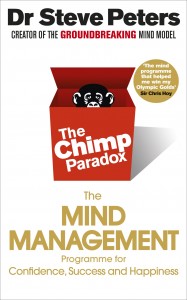When I first sat down to see that I had 14 talks and performances ahead of me I did start to think I was in for a long night. However, by the end I was pleading for more. A huge well done must go out to the organising team for getting together a fantastic line up.
All of the talks got me thinking and I would happily write a blog reflecting on each one. However if I did that I would be in for a long night! Instead I have decided to give my view on the talk that was most relevant to me. That talk was by Fraser Williams – How conversation creates remarkable change.
In his talk, Fraser shares the three tools he has used to turn an idea into action.
Ignore your emotion
Fraser shares his experiences in competing in Taekwondo, he talks about the nerves he had before competing in the European Championships. Having competed in large sporting competitions myself I know this feeling all too well. The voice in your head that thinks everything will go wrong, that doubts your ability and wants you to back out just to feel safe.
Fraser believes that this emotion needs to be ignored. Compete or commit anyway, despite that fear. Whilst I agree that it is not good to take this emotion seriously, I believe it can be countered rather than ignored. The Chimp Paradox by Steve Peters explains how these emotions are the instincts of the ‘chimp’ inside your head. They won’t go away, but they can be trained. Therefore I’d say, understand the emotion, know when it will appear but also understand that you can pass it and instead feel excitement.
Fraser ended this part of the talk by modifying a quote from Winston Churchill, he said:
“Success isn’t final, failure isn’t fatal. It is the courage to start that counts.”
When I first heard this I had very little to add, other than YES, YES, YES.
Embrace the sceptic
Our friendship groups hold all types of personalities; pessimists, optimists and those in-between. Fraser emphasises the importance of recognising these people and embracing them all, especially the pessimist as they are the ones who will point out the flaws which can then be turned into challenges and opportunities.
This is an extremely valuable tool and I’m glad to see it included in this talk. I completely agree that the sceptic needs to be embraced, however I feel like a warning message needs to put beside this tools – Be prepared to feel annoyed and believe that the person talking is wrong.
Sometimes you don’t have to embrace the sceptic for them to speak, they may be the person you least expect and so whenever you talk to anyone about an idea you must be prepared to hear some negatives. If you are caught off guard, chances are your defence mechanisms will kick in and you will disregard what is being said. I say, always be prepared to hear negative views and then embrace those – evaluate them, evaluate the source and then decide how to act.
Turn motivation into momentum
“Have one conversation and then have 100 more!”
When you get that initial rush of excitement and energy for your project, take action instantly. If you hold back, your enthusiasm will diminish, acting instantly will lead to quicker results and even more energy.
When talking about this tool, Fraser does an excellent job at including all types of people when discussing who you can talk to. I believe this is the most important part of this tool. Reach out to anyone and everyone, they may contribute in ways you couldn’t have predicted. Too often people hold back discussing their idea, believing people either won’t get it or won’t have anything worthwhile to add. This may be the case but often it will not. Don’t judge what a person will have to say until they have said it!
I will end this blog the same way Fraser ended his talk, by asking:
“What action can you take in the next five minutes on the idea that sits in the back of your head?”


